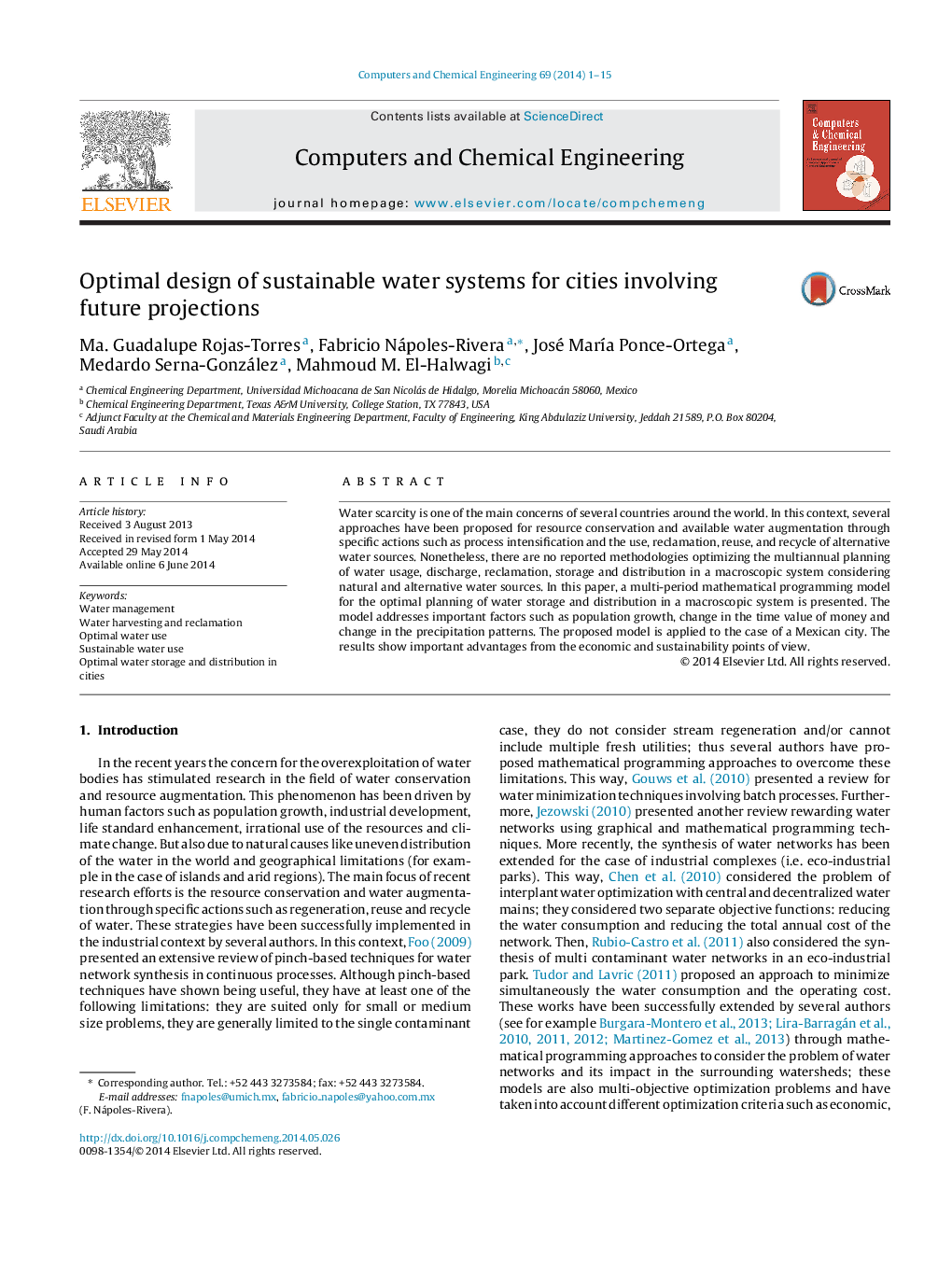| Article ID | Journal | Published Year | Pages | File Type |
|---|---|---|---|---|
| 172328 | Computers & Chemical Engineering | 2014 | 15 Pages |
•An optimization framework for designing macroscopic water systems is proposed.•Optimal planning and scheduling for water storage and distribution is considered.•The model incorporates several options for water recycling, reusing and collecting.•Future projections are considered in the model.•A case study for the city of Morelia in Mexico is presented.
Water scarcity is one of the main concerns of several countries around the world. In this context, several approaches have been proposed for resource conservation and available water augmentation through specific actions such as process intensification and the use, reclamation, reuse, and recycle of alternative water sources. Nonetheless, there are no reported methodologies optimizing the multiannual planning of water usage, discharge, reclamation, storage and distribution in a macroscopic system considering natural and alternative water sources. In this paper, a multi-period mathematical programming model for the optimal planning of water storage and distribution in a macroscopic system is presented. The model addresses important factors such as population growth, change in the time value of money and change in the precipitation patterns. The proposed model is applied to the case of a Mexican city. The results show important advantages from the economic and sustainability points of view.
